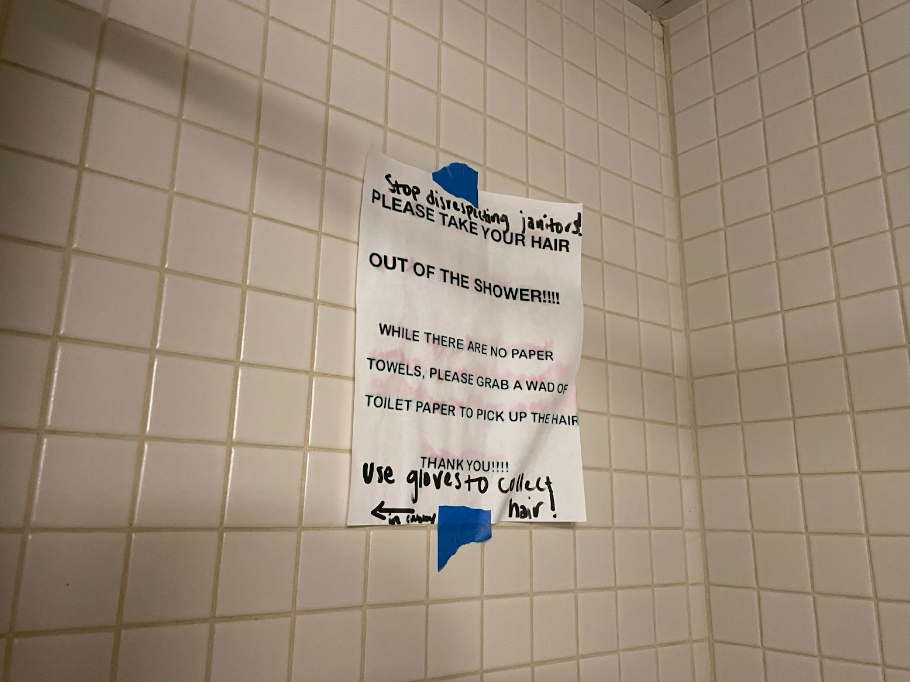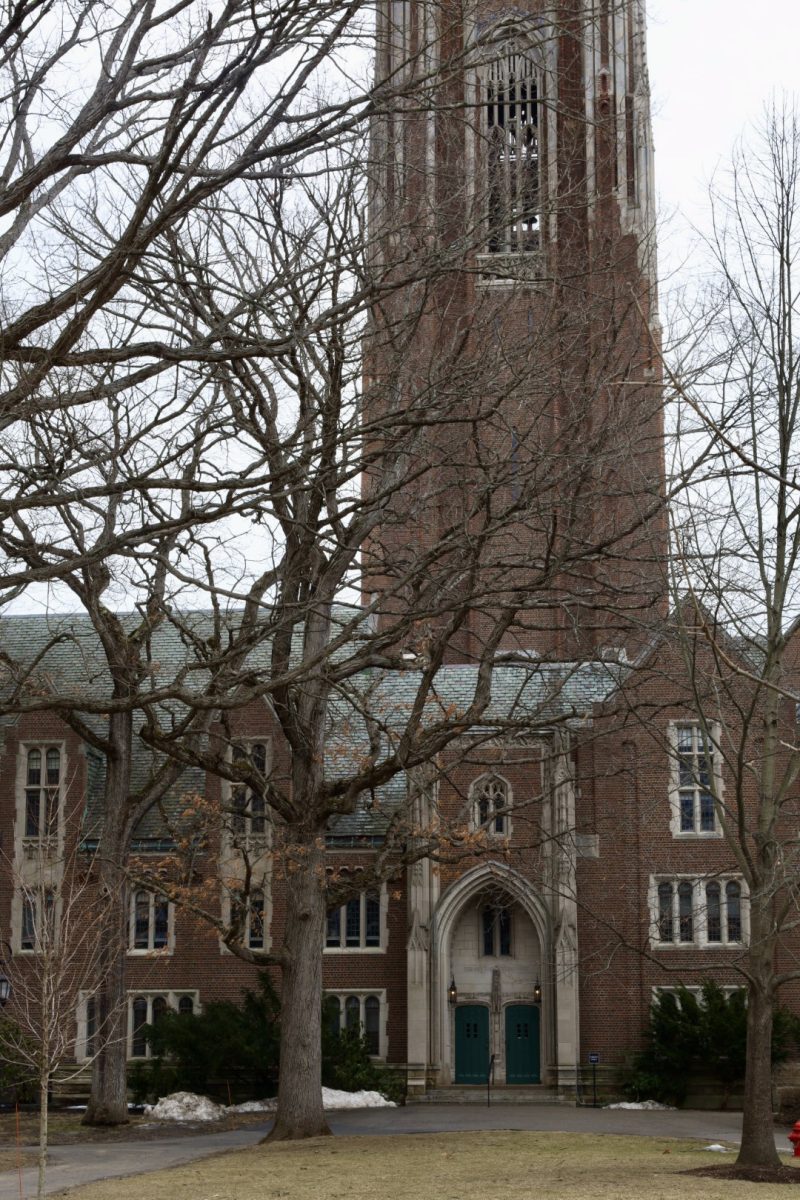Living in a communal environment can prove challenging for college students, and Wellesley College is no exception.
“I feel like some people don’t know this [space] is communal,” said Nic Wong ’24. Wong explains that they recently moved from Cazenove Hall to Beebe Hall and are disgusted by the change in conditions of the communal bathing spaces.
“I lived in the branch in Caz when there [were about] 10 of us. We had napkins that we put out, I had a bunch of pads that I didn’t use anymore so I put them on the shelf like, ‘Communal!’ I would clean up after myself. That place was nice, we took care of that bathroom. There were flowers by the window. Oh my god, I want to move back,” said Nic.
In their short time in Beebe, Nic reports that they have seen a number of hazardous practices.
“There was a biohazard left on the seat for days. And I didn’t want to clean that up because it’s a biohazard. It’s the custodian’s job, but you don’t have to make the custodian’s job that hard either,” said Nic while noting that custodians are part of the community affected by poor hygiene practices. “I feel really bad for the custodians … The custodian had to put up signs telling people to flush.”
“If Wellesley actually cares about communal living and fostering community, we still have to treat our facilities with care. It’s very basic,” said Wong, “Leave the facilities in a way that you would come back to and use again.”
Miliana Alaniz, ’27 describes similar experiences to Wong.
“Hair in the drains is a huge [problem]. I usually shower in the tub, and the water will go up to my ankles. I have to use my shoe to move the hair from the drain. It’s disgusting,” said Alaniz.
She notes that poor conditions in bathrooms lead to an altered sense of personal hygiene.
“It makes someone not feel like the place they are in is clean or cared for. I think, if you’re going to shower somewhere, it has to be a space where you feel clean. Especially in bathroom spaces, you really need to care about [it] because there are other people there that want to feel clean,” said Alaniz, “It kind of takes a toll on someone’s perspective on their own physical wellbeing. Yeah, I might be clean, but sometimes I don’t feel clean when I am going to bed.”
Like Wong and Alaniz, Riley Theophile, ’25 has witnessed unusual hygiene behaviors in shared spaces around campus, both in and out of residential halls.
“I have noticed that people here, not just this year but over my three years here, have been avoiding washing their hands, which is concerning, seeing that I feel like we all learned how to do that when we were 3 years old,” said Theophile, “One, it’s gross, and two, it’s disrespectful in a way, especially since we all are trying to move past COVID, we’re trying to not have another outbreak here, and people are still immunocompromised. Something so simple that takes 20 seconds of your time, why are you avoiding it?”
Despite not having encountered bodily fluids or excessive hair left in restrooms like Nic and Alaniz, Theophile cannot comprehend why people avoid hand washing regularly.
“[Some people] do this thing where they put soap on their hands but rinse it off immediately. That’s gross. You are kind of defeating the purpose of washing your hands. You’re supposed to stop the spread of germs especially right now. Especially in the fall. Especially coming off of the height of COVID,” said Theophile, “We are all living in a large communal space so not everything is going to be clean, but we should all be trying our best to avoid spreading germs. The fall season, everyone is getting sick. Colds, flus, things like that, but washing your hands is such a simple task that avoids the spread of sicknesses. It should be second nature at this point.”
Poor hygiene practices affect not only Wellesley’s students and custodial staff but also members of Residential Life. Olivia Hamparsoomian, community director of Beebe and Cazenove Halls, emphasized the importance of even small-scale, individual actions in making a clean living environment.
“Seemingly ‘small’ individual actions can make a large impact when everyone living in a community participates. For example, if I commit to cleaning my hair out of a drain every time I shower, and so does everyone else on my floor, it creates a better environment for everyone. Additionally, these ‘small’ compounding efforts from everyone helps our custodians in their workload and spread their efforts evenly across all building facilities evenly,” said Hamparsoomian, “I believe that the best mindset when living in a community is to leave no trace.”




